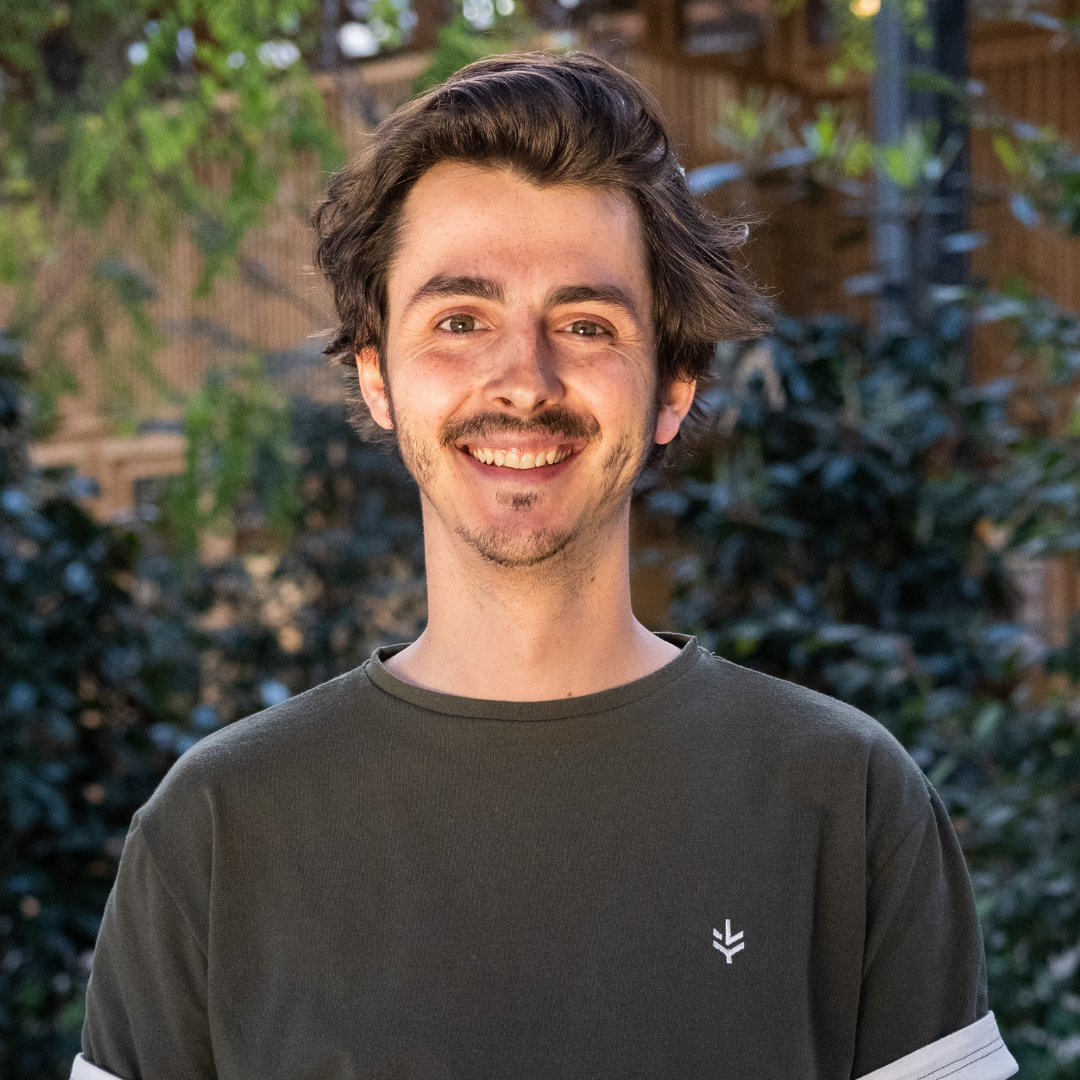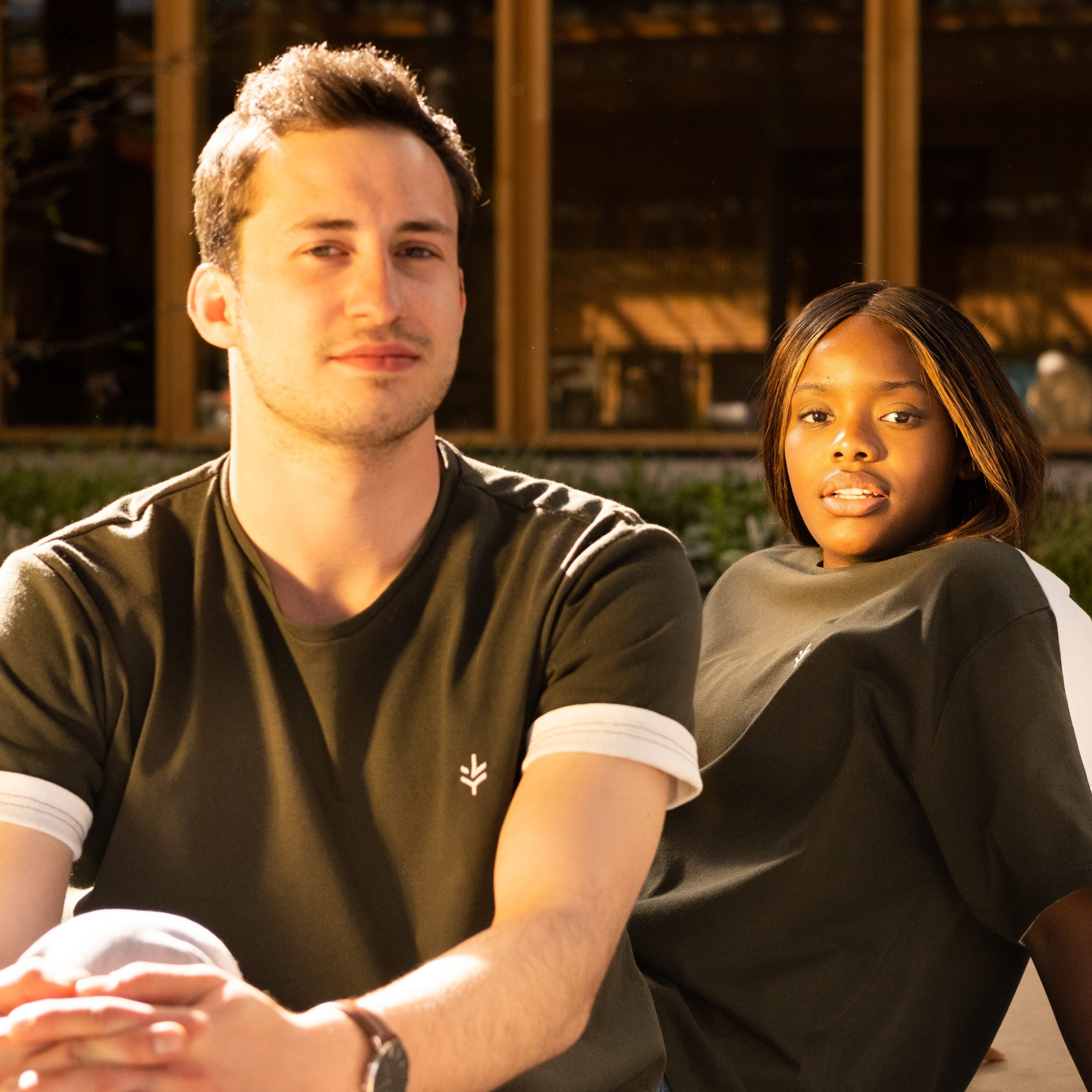Starting with a Master’s Thesis
Jean Seyll’s pet peeve is greenwashing. He chose to work on circular economy looking for a way to make things differently. He specifically focused on recycled textiles. The question he wanted to answer was “what is the real difference in impact between clothes made from recycled textiles and ones made from virgin materials?”. The results were astonishing, as recycled clothes seemed incredibly much better for the environment. Still, Jean was unable to find a company that produced garments that really checked all the boxes – at least in his country, Belgium. He quickly understood that this was his chance to actually do something. “I had ideas before, but never really applied them”, he said. This was going to be his first time.
Despite developing broad knowledge and a wide network in the sustainable fashion industry due to his thesis, Jean was not ready to fully commit at this point. He decided to accept an internship at Deloitte where he quickly realised that this was not his calling. He wanted to have a direct positive impact and be a changemaker. In April 2021 he started working on his personal project full time and has continued ever since.

Bringing LUCID-ity to the fashion industry
While developing his project, Jean came up with five fundamental pillars: environmental, social, transparency, relocation and sustainability activism. Starting from the last, Jean wanted his brand to be an ambassador for sustainability activism. Second, he wanted to achieve a 100% Belgian supply chain. Third, he wanted all processes to be fully transparent and understandable for all stakeholders – from clients to suppliers and manufacturers. Furthermore, Jean wanted to make a positive social impact and create job opportunities for people with disabilities. Finally, he wanted his products to be environmentally friendly: with a small footprint, long-lasting (both high quality and with timeless designs), and 100% made from recycled materials or low-impact ones (such as linen and hemp). And this is how Lucid was born.
But clearly, a startup is not made overnight. First, Jean decided to ask for support from the Blue Factory, ESCP’s startup incubator. Then, he had to understand if there was a market for Lucid. He decided to test how logistics would work under pressure by producing 100 t-shirts. He sold them on Instagram and through his website and ended up having more orders than expected. After that, he followed up with his customers and made a survey to enhance the product for new launches. Finally, Jean ran a crowdfunding campaign in May 2022. The results exceeded his expectations and he could start to focus on developing different products, such as sweatshirts, hoodies and beanies.

The hardship along the way
Having a startup is like living on a rollercoaster: some days “everything goes well, and some others you just get a ton of bad news”, Jean says. But that does not have to stop you from pursuing your goals. Something that Jean had to learn the hard way was that the values behind a brand (i.e. sustainability and being ethical) are not the only factors that customers look at, so he also had to consider quality, design, and price.
Another obstacle that Jean had to overcome concerns materials. As of now, it is impossible to make a t-shirt from 100% recycled cotton. Due to sustainability reasons, Jean did not want to include virgin cotton in his products, so he opted for 50% recycled cotton and 50% recycled polyester. This blend makes the pieces more resistant, however, it also makes them much harder to recycle (from a logical and technical point of view). In fact, textiles are currently mechanically recycled, which means that the pieces are shredded and made into new threads. Jean says he has high hopes for the advancement of chemical recycling: this would allow the separation of the cotton from the polyester in the blend, for seamless recycling.
But what is in store for Lucid? First and foremost, Jean wants to produce different pieces (such as shirts, hats and so on) and see how the market reacts to them. He also wants to expand to working with other materials, like recycled hemp or linen. Finally, as Jean is currently coordinating everything alone, he is also in the process of finding a co-founder.
Jean invites you to follow along Lucid’s journey on all social media channels and contact him in case you want to support the project in any way!
Website: https://www.belucidclothing.be/
Instagram: lucid.honestclothing
Email: jean@belucidclothing.be